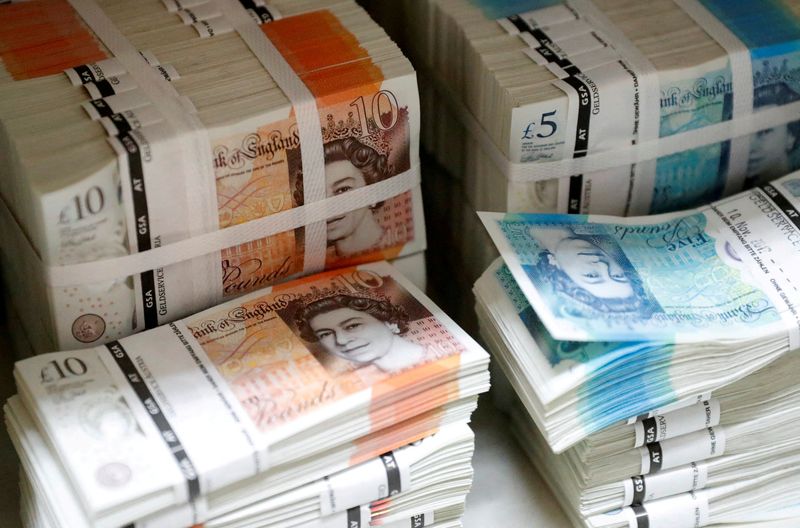By Amanda Cooper
LONDON (Reuters) - The pound held mostly steady on Wednesday, after data showed British consumers borrowed less than expected in July in response to higher interest rates, while a gauge of housing market was forecast to hit an 11-year low this year.
Volatility in the currency market remained subdued ahead of key data releases in the United States this week that could give investors a clear steer on what the Federal Reserve might do with interest rates in the coming months.
A measure of U.S. consumer inflation on Thursday and the key monthly employment report on Friday could confirm the view that the Fed may be close to the end of its rate-hike cycle.
Sterling, which is heading for its biggest monthly fall against the dollar in six months in August, was up 0.2% at $1.2665 and flat against the euro at 86 pence.
The dollar has got a lift this month from evidence that the U.S. economy is proving resilient in the face of higher interest rates and persistent inflation. Sterling has dropped 1.35% so far in August, the most in a month since February's 2.43% drop.
"This morning, GBP/USD is inching lower along with other dollar crosses, although it appears that the pound’s sensitivity to risk sentiment is a bit more limited at this moment," ING strategist Francesco Pesole said.
Back in Britain, the Bank of England meets next month to discuss monetary policy. Money markets show traders expect roughly two more 25-basis point rate hikes this year and for rates to peak around 5.8% by March from 5.25% right now.
BoE data on Wednesday showed UK consumers increased their borrowing by less than expected in July in a possible sign of caution among households as borrowing costs rise.
The pace of growth in consumer credit over the 12 months to July slowed to 7.3%, the smallest increase since December last year.
Meanwhile, a forecast from property website Zoopla offered a downbeat read on the housing market, as the cost of taking out a mortgage rises with interest rates.
Consumers have struggled with a cost-of-living crisis, triggered by soaring food and energy prices, which has weighed on their ability to pay for anything from homes to new cars.
Wage growth, at 7.8%, is above the headline rate of inflation for the first time since October 2021.
Zoopla said the number of house purchases in Britain this year is on course to drop by 21% to its lowest since 2012 as a result of rising borrowing costs.

The BoE data also added to signs of a slowdown in the housing market as mortgage approvals by banks and building societies dropped by more than 5,000 on the month to 49,444, below the Reuters poll forecast of 51,000.
"Surging rates and declining demand for loans have already triggered a house price correction in the country," Pesole said.